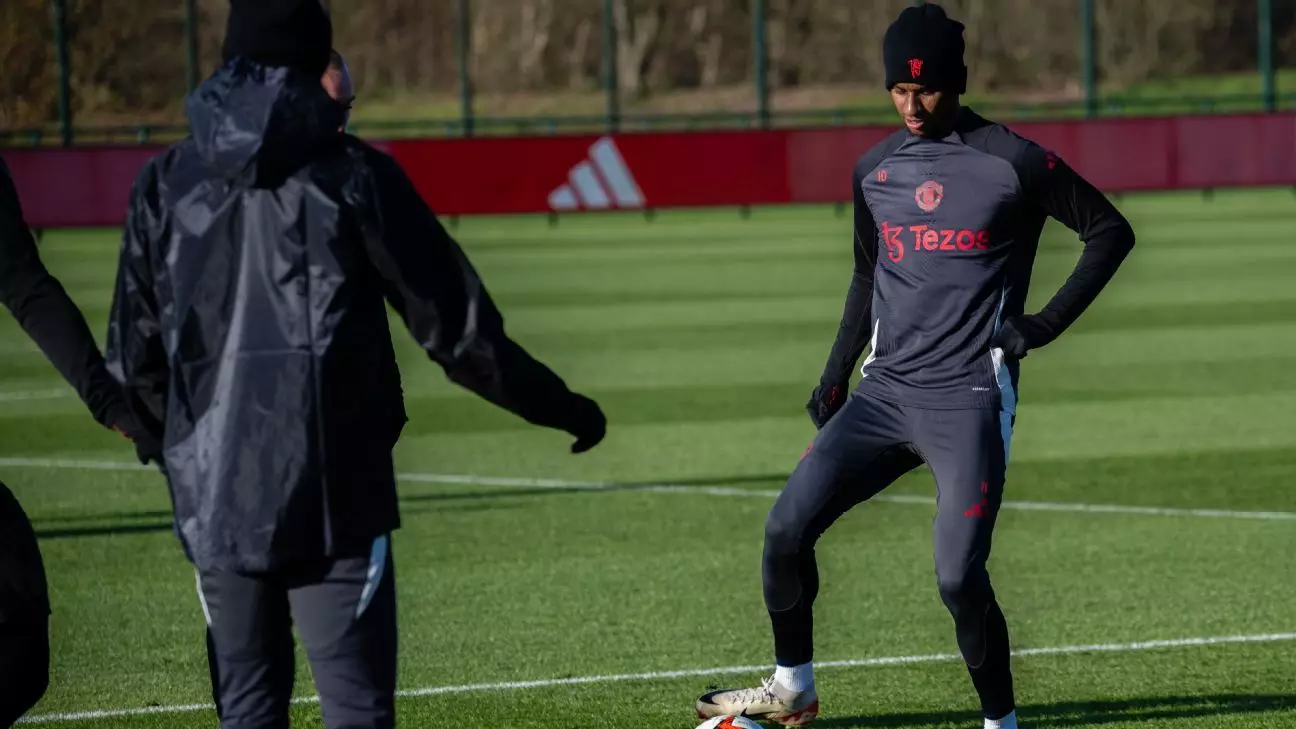Recent developments at Manchester United have placed Marcus Rashford in a difficult position, one that head coach Ruben Amorim has emphatically articulated. Rashford’s absence from the last three matchday squads, including critical clashes against rivals such as Manchester City, Tottenham, and Bournemouth, indicates a significant disciplinary action stemming from Amorim’s assessment of his player’s training performances rather than his public statements about wanting to leave the club. This stark decision suggests that Amorim is prioritizing a team’s standard of performance over individual star power, a move that could have far-reaching implications for both player morale and team dynamics.
Amorim’s Approach to Leadership
Amorim’s comments illuminate his leadership style, which hinges on accountability and performance metrics. His insistence on discussing Rashford’s form, rather than the controversial interview, illustrates a determined focus on professional standards within the club. This approach, while being rooted in accountability, may also be a calculated strategy to instill a sense of urgency among all players. With the head coach stating, “It’s my decision, only my decision,” it is clear he is drawing lines that players must either adhere to or risk further exclusion.
By articulating the need for Rashford to “be the best that he can be,” Amorim is not only calling out the player but also urging him to rise to the occasion amidst the club’s current low moment. This call for heightened responsibility is particularly poignant in a climate where Manchester United is grappling with inconsistent performances.
Amorim’s remarks extend beyond an individual critique, reaching into the broader narrative of team dynamics and shared accountability. The head coach mentions that some players have a historical responsibility to lead and uplift the squad during challenging times. This is critical for any successful team; acknowledging that the burden cannot solely rest on a few key figures—every player must engage and contribute actively to the team’s overall performance. The coach’s emphasis on collective strength, particularly in light of a club experiencing what he classifies as “one of the lowest moments,” communicates a sense of urgency for renewal and resilience among his squad.
Despite the prevailing media focus on Rashford’s situation, Amorim maintains that the narrative has not become a distraction for the team. His daily communication with players—specifically about performance and not the media’s speculation—underscores his desire to keep the focus where it belongs: on football. The clarity he claims to provide at Carrington could serve as a foundation for rebuilding confidence within a squad that has shown cracks under pressure.
In essence, Amorim’s vision for Manchester United includes not only the return of star players to optimal form but also the cultivation of a team culture rooted in shared responsibility and high performance. The future remains uncertain, but with a strong leadership approach and high standards, the club may be on the precipice of critical renewal—a necessary condition for any potential resurgence.

